Google Ads 101: Launch and Optimize Your First PPC Campaign
Google Ads powers millions of small to medium-sized businesses by delivering targeted pay-per-click (PPC) ads that generate high-intent traffic and measurable leads. In this guide, you’ll discover what Google Ads is, how to launch your first campaign, master keyword research, write ads that convert, and manage budget and bidding strategies. By following expert google ads tips for beginners and integrating insights from our Lead Generation & Information Hub at electronicplayground.com, you’ll be ready to start campaigns that drive real growth.
What Is Google Ads and How Does It Work for Beginners?
Google Ads is Google’s PPC advertising platform that matches entrepreneur bids to user search queries via an automated auction, delivering ads to relevant audiences and driving conversion-focused traffic to your website. Understanding this foundation ensures you can harness budget control and performance tracking from day one.
What Is Google Ads and Why Is It Important for Small Businesses?
Google Ads empowers small businesses to reach customers at the moment they search for related products or services, offering precise geographic and demographic targeting, budget flexibility, and detailed analytics that fuel lead generation and revenue growth. This importance underpins why mastering the auction process is critical.
How Does the Google Ads Auction System Determine Ad Placement?
The Google Ads auction ranks ads by Ad Rank, which multiplies your maximum bid by Quality Score—a composite metric of expected click-through rate (CTR), ad relevance, and landing page experience—to determine position and cost per click (CPC). Understanding Ad Rank mechanics helps you improve placement and lower costs.
Google Ads Auction System
The Google Ads auction system determines ad placement by calculating an Ad Rank, which is based on the maximum bid and Quality Score. Quality Score is a composite metric that evaluates expected click-through rate, ad relevance, and landing page experience to determine position and cost per click.
This information supports the article’s explanation of how ad placement is determined within the Google Ads platform.
What Are Key Google Ads Terms Beginners Should Know?
Before launching campaigns, novices should learn core terms to interpret performance and optimize bids.
| Entity | Attribute | Value |
|---|---|---|
| CPC | Definition | Cost you pay per click |
| CTR | Definition | Percentage of ad impressions clicked |
| Quality Score | Mechanism | Evaluates ad relevance & landing quality |
| Conversion Rate | Metric | Percentage of clicks that convert |
Mastering these terms sets the stage for seamless campaign setup and goal definition.
How Do You Set Up Your First Google Ads Campaign?
Creating a Google Ads campaign means opening an account, specifying objectives, and choosing the right campaign type to deliver targeted ads that meet business goals and track outcomes effectively. With clear goals, you can select formats that suit your audience and budget.
How to Create a Google Ads Account Step-by-Step
To create your account, go to ads.google.com, sign in with your Google credentials, enter billing details, select currency and time zone, and verify your payment method. This streamlined process grants access to the Google Ads dashboard and campaign creation tools.
How to Define Clear Campaign Goals for Beginners
Defining campaign goals requires selecting objectives—such as lead generation, website traffic, or brand awareness—and aligning settings like location targeting and bid strategies to those outcomes. Clear goals guide campaign structure and performance measurement.
What Are the Different Types of Google Ads Campaigns?
Google Ads offers four primary campaign types tailored to various business objectives and audience behaviors.
| Entity | Best For | Key Benefit |
|---|---|---|
| Search Campaigns | High-intent queries | Captures users actively searching |
| Display Campaigns | Brand visibility | Visual ads on partner sites |
| Video Campaigns | Story-driven promotion | Engaging audiences on YouTube |
| Performance Max | Automated multi-channel | Unified optimization across channels |
Choosing the right format enhances reach and return on ad spend (ROAS).
How Can Beginners Master Google Ads Keyword Research?
Keyword research identifies the exact terms potential customers use, leveraging tools like Keyword Planner to optimize bids and ad relevance, which elevates quality score and reduces average CPC.
How to Use Google Keyword Planner for Effective Keyword Research
In Keyword Planner, enter seed keywords or your website URL to discover related search terms, estimated search volume, and bid ranges. Export lists to target high-intent keywords that align with your budget and objectives.
What Are Keyword Match Types and How Do They Affect Your Ads?
Match types control which searches trigger your ads and influence traffic volume and precision:
- Broad Match captures a wide range of searches with related variations.
- Phrase Match shows ads for queries containing the exact phrase in order.
- Exact Match triggers only for searches identical to your keyword.
- Negative Keywords exclude unwanted traffic by blocking specific terms.
Keyword Research and Match Types
Keyword research is essential for identifying the terms potential customers use when searching. Match types control which searches trigger ads, influencing traffic volume and precision. Broad match captures a wide range of searches, while exact match triggers ads only for identical searches.
This citation provides further detail on the importance of keyword research and the different match types available within Google Ads.
Optimizing match types balances reach and relevance for maximum ROI.
How to Organize Keywords into Ad Groups for Better Performance
Grouping related keywords into tightly themed ad groups improves ad relevance, Quality Score, and click-through rate. Structuring ad groups around single product features or services ensures tailored ad copy and landing pages.
What Are Best Practices for Writing Effective Google Ads?
Effective Google Ads combine clear, benefit-driven headlines, concise descriptions, and relevant extensions to boost Quality Score, increase click-through rates, and drive conversions by aligning with user intent.
How to Write Compelling Ad Copy That Converts
Write headlines that include primary keywords, highlight unique selling points, and include strong calls to action. Follow with descriptions that specify benefits, promotions, or guarantees to persuade clicks and conversions.
What Are Google Ads Extensions and How Do You Use Them?
Extensions add supplemental information to your ads, enriching visibility and performance:
- Sitelink Extensions provide additional page links.
- Callout Extensions highlight key features (e.g., “Free Consultation”).
- Structured Snippet Extensions showcase product categories or services.
Using extensions improves ad prominence and click-through rates.
How to Optimize Landing Pages for Google Ads Success
Ensure landing pages match ad copy, load quickly, and feature clear calls to action. A relevant, mobile-friendly page enhances user experience and raises Quality Score, reducing CPC and boosting conversion rates.
How Do You Manage Google Ads Budget and Bidding Strategies?
Balancing budget and bidding strategies ensures cost-effective ad delivery by selecting suitable bid automation and defining realistic daily spend limits to maximize ROI.
What Are Common Google Ads Bidding Strategies for Beginners?
Beginners can choose from strategies that automate bids based on goals:
- Maximize Clicks targets the highest click volume within budget.
- Maximize Conversions uses machine learning to drive the most conversions.
- Manual CPC lets you set individual bids for maximum control.
How to Set and Control Your Google Ads Budget Effectively
Allocate daily and monthly budgets based on campaign goals, historical performance, and target cost per acquisition (CPA). Monitor spend in real time and adjust budgets to capitalize on high-performing campaigns.
What Tips Help Optimize Your Bidding for Better ROI?
- Review Search Terms reports regularly to refine keyword bids.
- Increase bids on high-performing keywords and decrease on underperformers.
- Leverage bid adjustments for device, location, and time of day.
Continuous bid optimization drives lower CPA and higher returns.
Mastering these Google Ads basics equips you to launch and refine PPC campaigns that generate qualified leads and sustainable growth. As a trusted advisor in digital marketing, electronicplayground.com offers expert Google Ads management and consultation to help you scale. Explore our Google Ads campaign types guide, deepen your insights with Google Ads keyword research, and refine spend using our Google Ads bidding strategies. Start your first campaign today and watch your business thrive.
Frequently Asked Questions
What is the difference between Google Ads and traditional advertising?
Google Ads operates on a pay-per-click (PPC) model, allowing businesses to pay only when users click on their ads, making it cost-effective. In contrast, traditional advertising often involves upfront costs for placements, regardless of engagement. Google Ads also offers precise targeting based on user behavior and search intent, enabling businesses to reach potential customers at the right moment, which is less feasible with traditional methods.
How can I track the performance of my Google Ads campaigns?
Tracking performance in Google Ads is facilitated through the platform’s built-in analytics tools. You can monitor key metrics such as click-through rates (CTR), conversion rates, and return on ad spend (ROAS). Setting up conversion tracking allows you to see which ads lead to desired actions on your website. Additionally, Google Analytics can be integrated for deeper insights into user behavior post-click, helping you refine your campaigns effectively.
What are some common mistakes beginners make with Google Ads?
Beginners often make mistakes such as not defining clear campaign goals, neglecting keyword research, or failing to utilize negative keywords, which can lead to wasted ad spend. Additionally, many overlook the importance of ad relevance and landing page optimization, which can negatively impact Quality Score. Regularly reviewing performance data and adjusting strategies based on insights can help avoid these pitfalls and improve campaign effectiveness.
How often should I review and adjust my Google Ads campaigns?
It’s advisable to review your Google Ads campaigns at least once a week, especially in the initial stages. Frequent monitoring allows you to identify trends, assess performance, and make necessary adjustments to bids, keywords, and ad copy. As your campaigns stabilize, you can shift to bi-weekly or monthly reviews, but always be prepared to make changes in response to significant performance shifts or market changes.
Can I run Google Ads on a limited budget?
Yes, Google Ads is designed to accommodate various budgets. You can set daily and monthly spending limits, allowing you to control costs effectively. Start with a modest budget to test different ads and strategies, then scale up based on performance. Utilizing automated bidding strategies can also help maximize your budget by optimizing bids for the best possible results within your financial constraints.
What role do ad extensions play in Google Ads campaigns?
Ad extensions enhance your Google Ads by providing additional information and increasing visibility. They can include sitelinks, callouts, and structured snippets, which help to convey more about your offerings without additional cost. By using ad extensions, you can improve click-through rates and overall ad performance, as they make your ads more informative and appealing to potential customers.
How can I improve my Quality Score in Google Ads?
Improving your Quality Score involves enhancing ad relevance, optimizing landing pages, and increasing click-through rates. Start by ensuring your keywords are closely aligned with your ad copy and landing page content. Regularly test different ad variations to find the most effective messaging. Additionally, focus on improving user experience on your landing pages, as a fast-loading, relevant page can significantly boost your Quality Score.







